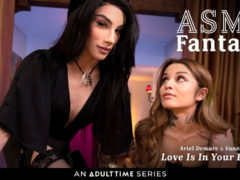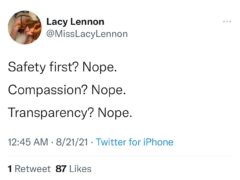*Why do you write about porn? Was there a specific event that pushed you toward this? Why a book on porn?*
I began my research and writing on pornography in 1988, as a graduate student interested in freedom of expression. The debate over the feminist critique of pornography was at that point one of the most important sites of struggle over the meaning of free speech. I began with fairly traditional liberal/libertarian views on the subject but began reading the feminists who were critiquing pornography. I came to realize that their analysis was compelling, the best way to understand the nature of pornography and its role in contemporary society. I also began to realize that radical feminism offered a framework of analysis for me to counter the toxic conceptions of masculinity with which men in this culture — including me — had grown up. No single event sparked this process, nor was there a single moment of epiphany.
I wrote this book because, after 18 years of research on the subject, it seemed time to bring together that work in a book for the general public (not for an academic audience), especially as ordinary people’s legitimate concerns about pornography are intensifying in the internet age. I think it’s important that there be as widely available as possible as many expressions of the feminist critique as possible, to give people a way to express their concerns without having to place them in the language of the right-wing and religious critiques.
* What is new in your critiques of porn?*
The feminist analysis first articulated by Andrea Dworkin remains the most compelling analysis available. If anything, it’s clearer than ever that Andrea was right on target in her work; pornography has become more overtly misogynistic and racist since she began her work, and the negative consequences of a pornographic culture are more evident than ever. So, in one sense, there’s nothing fundamentally new in my book. But I hope the book makes a contribution to people’s understanding by (a) offering an updated analysis of the content of contemporary mass-marketed heterosexual pornography; (b) placing that analysis in a clear critique of masculinity; (c) from the perspective of a man, in language that is accessible to everyone.
* How have your interactions with pornographers/porn stars affected your views of pornography?*
I have attended two Adult Entertainment Expos in Las Vegas in recent years and talked to as many people in the industry as possible. I’ve debated the editor of Hustler magazine on the radio. I read Adult Video News and industry web sites. I listen to voices from the industry often, and nothing I hear undermines the feminist critique. Pornographers often assert that they are simply producing “adult entertainment,” but their own words describing their work help us understand why pornography is so relentlessly misogynistic and racist. That’s why I quote people in the industry in my book.
* How have your views on porn changed over time? Was there a time when you were an addict to porn or noticed that porn had a negative effect on you?*
I have written about my own history of using pornography as a child and a young man, up to the time I encountered the feminist critique. Like many men, I used pornography with other men in male-bonding exercises, and I used it when I was alone. My use was episodic, not habitual. I don’t ever use the term “addiction” to describe intense or repeated pornography use, but in the common-sense use of the term, no, I was never a porn addict. But did pornography have negative effects on me? Yes, that’s the argument of my book — that men’s use of pornography not only has clear and dramatic negative effects that harm women but negative consequences for men as well. In the book I set my own history in the larger story of the culture.
* How do you balance your crusading impulse with your objective journalistic impulse?*
I don’t think I have a crusading impulse. I have spent nearly 20 years researching an aspect of contemporary culture that I conclude has a variety of harmful effects on the real lives of real people. Engaging in political organizing and speaking out against something that I have concluded is damaging and inconsistent with social justice doesn’t strike me as crusading. I think of it as part of my obligation as a citizen, especially as a very privileged person who is paid to do intellectual work. Beyond that, the heart-and-soul of the best journalism always has been addressing the injustices in the modern world. In that sense, my writing on pornography — while not “journalistic” in the narrow sense that the term is used in commercial newsrooms in the United States — is very much in an honorable journalistic tradition.










Did you ask for his opinion on Max Hardcore and M. Handel bodies of work?
Just curious.
http://uts.cc.utexas.edu/~rjensen/index.html
“It‚Äôs pretty clear what sex is for in the world of pornography. In an Adult Video News story on gonzo directors, the writer described the typical viewer as ‚Äúthe solo stroking consumer who merely wants to cut to the chase, get off on the good stuff, then, if they really wanna catch some acting, plot and dialog, pop in the latest Netflix disc.‚Äù In other words, sex is for a simple physical sensation, delivered as efficiently and quickly as possible, with no concern for who is used in the process or how they are used. In that world, pornography will always be attractive because pornography works: It delivers that orgasm. Once a man has accepted that understanding of sex, the quest is for the best pornography to deliver that orgasm with the most intensity, and other considerations — about the costs to the people who make pornography, the politics of the images, or the harms that may result from the industry — drop out of sight.”
Source: Robert Jensen’s website